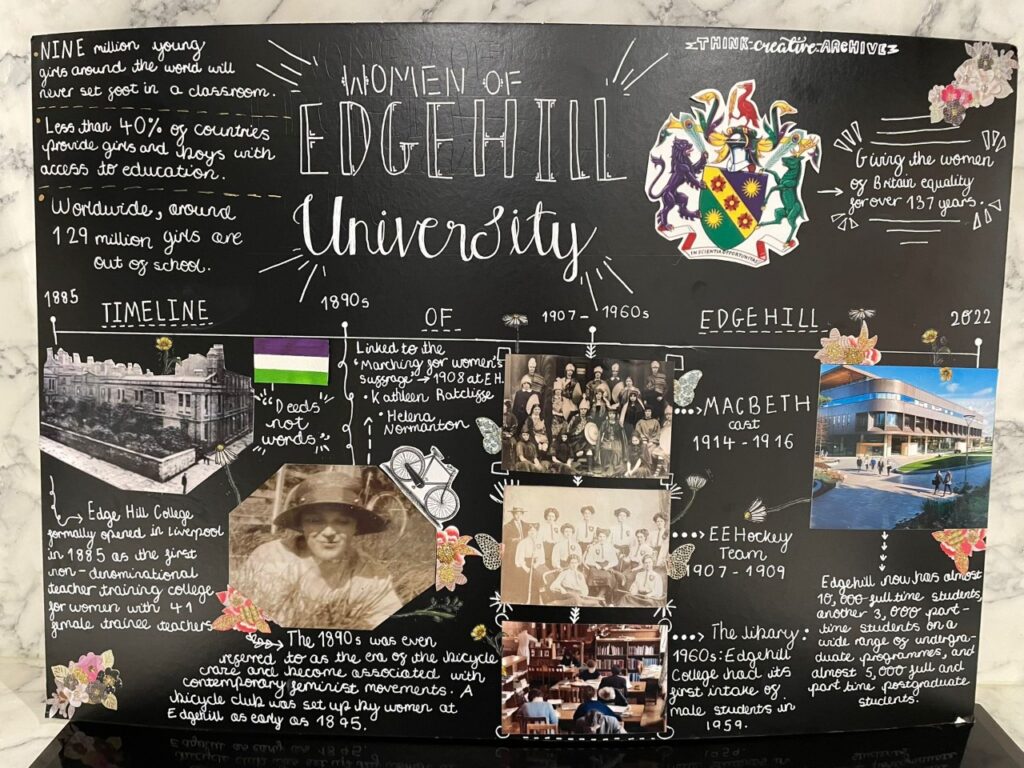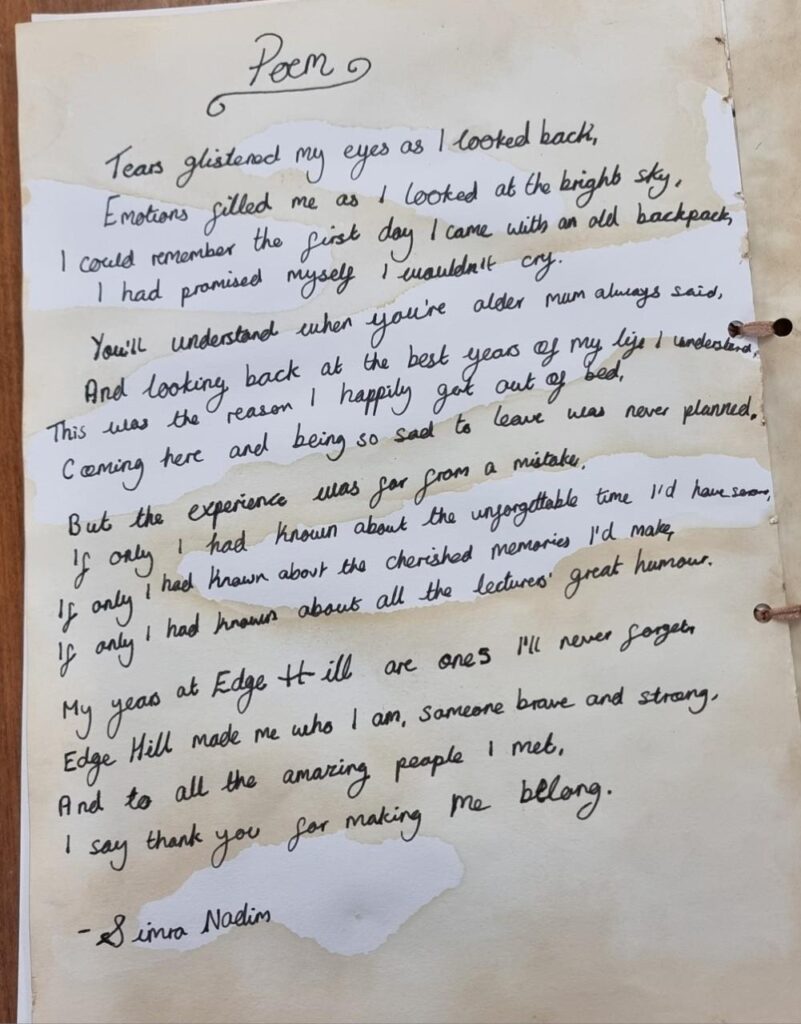1st prize – Amelia Turska

2nd prize – Simra Nadim

Joint 3rd prize – Olivia Nathan
My Story About the Paper Boy – In View of the Paper Boy
I woke up one dull morning. Everything felt weird and different. After a while, I realized I couldn’t bend my arms or legs and felt quite stiff. My bed had grown giant, and everything seemed at least 10 times larger than what they normally looked like. I jumped out of my castle-sized bed and sprunt to the mirror across the floor. “AH!” I screamed. I was a paper boy. My memory was very hazy of last night, I couldn’t remember anything that happened or how I ended up falling asleep. All I could think of was my end of year exam which I have today. I knew I could not miss it as it determined if I was good enough to stay at Edge Hill University or if I was in fact not too good. My brain was confused. There was nothing in my mind that helped me stay calm or understand what I needed to do to get out of this sticky mess. Suddenly, an idea shot into my head. Quickly, I jumped up to the handle of the wardrobe door and swung it open. I ran back and found my little doll set. I grabbed the clothes off my favourite doll and got changed. At that moment, my alarm clock started ringing and I heard my roommate Bethany waking up. I was petrified. I didn’t know how to explain to her that I had become a paper boy. Out of the blue, I found out that I could run extremely fast. I placed to doll shoes on my feet and sprinted out of my room to Bethany’s room. She gasped. “Beth it’s only me, don’t worry. I have become a paper boy and do not know what to do or how this happened.” I explained. She nodded understandingly and picked me up. “Our exams will be posted into the door in 15 minutes, you still need to do it now!” she replied. I ran back to my room and grabbed a pencil and sharpener out of my pencil case. I sharpened the pencil for 10 minutes so it was just as miniscule as me. PLOP. The papers were posted through the door. We both grabbed our own test and began. I opened the first page and answered each question within seconds. Luckily, I understood every question and answered each one with care. A few hours later, I had finished my examination. I was so tired I got into bed and drifted off to sleep. BEEP. An alarm began ringing down my ear. I opened my eyes to see my paper had disappeared and everything was back to normal size. “Good morning!” exclaimed Beth, “After that paper I didn’t think you would wake up so I handed it in!” In your sleep. “I’m not a paper boy!” I replied. “You never were,” Beth giggled, “I think it was all just a nightmare.”
Olivia Nathan, 15 Years Old, Year 10
Joint 3rd prize – Sundus Fatimah
In a piece of writing from the Edge Hill Archive, while discussing the suffragettes and the suffragists, Helena Normanton mentions how those in power were taking advantage of ‘the polite way’ in which suffragists were asking for their rights and that they were ‘victims of their own sweet reasonableness.’ these remarks made me ponder over other instances in history when a movement had a non-violent approach to tackling injustice to begin with, but due to their peaceful pleas being side-lined by the government, there became parts of the movement that used more violent tactics.
One such instance was the American Civil Rights Movement. From a young age, children across the world are taught about the teachings and struggles of Martin Luther King Junior, who was famously non-violent in his protests, such as the Montgomery Bus Boycott of 1995. This particular protest, he was alongside another famous non-violent protester- Rosa Parks. The Boycott lasted for a year, and King continued to co-ordinate non violent acts of resistance against racial discrimination in America. However, there were those who had a more aggressive approach to discrimination, such as Malcolm X, who said. “We are non violent with people who are non violent with us.”
Both Malcolm and King had an impact on history, and they both affected the way Black people were treated America. Although there were obvious points of contention between those who adopted opposite methodologies to opposing the oppression they were subjected to, that doesn’t mean that the people who followed those methodologies didn’t get along. In fact, Rosa Parks was influenced by Malcolm X, so much so that author Jeanne Theoharris said that Malcolm was Parks’ personal hero.
The point of this piece of writing is not to condemn either approach, but it is to ask whether the public really should think that it is reprehensible if someone reacts violently to the oppression that is inflicted upon them. Because sometimes, it seems that the authorities only seem to acknowledge the voice of dissent when the voice has a burning torch accompanying it. Somehow, it is expected for the oppressed to react with non violence, yet no brows are raised at the oppressors who caused the hurt, injustice and grievance in the first place. As John F. Kennedy said, “Those who make peaceful revolution impossible will make violent revolution inevitable.”
